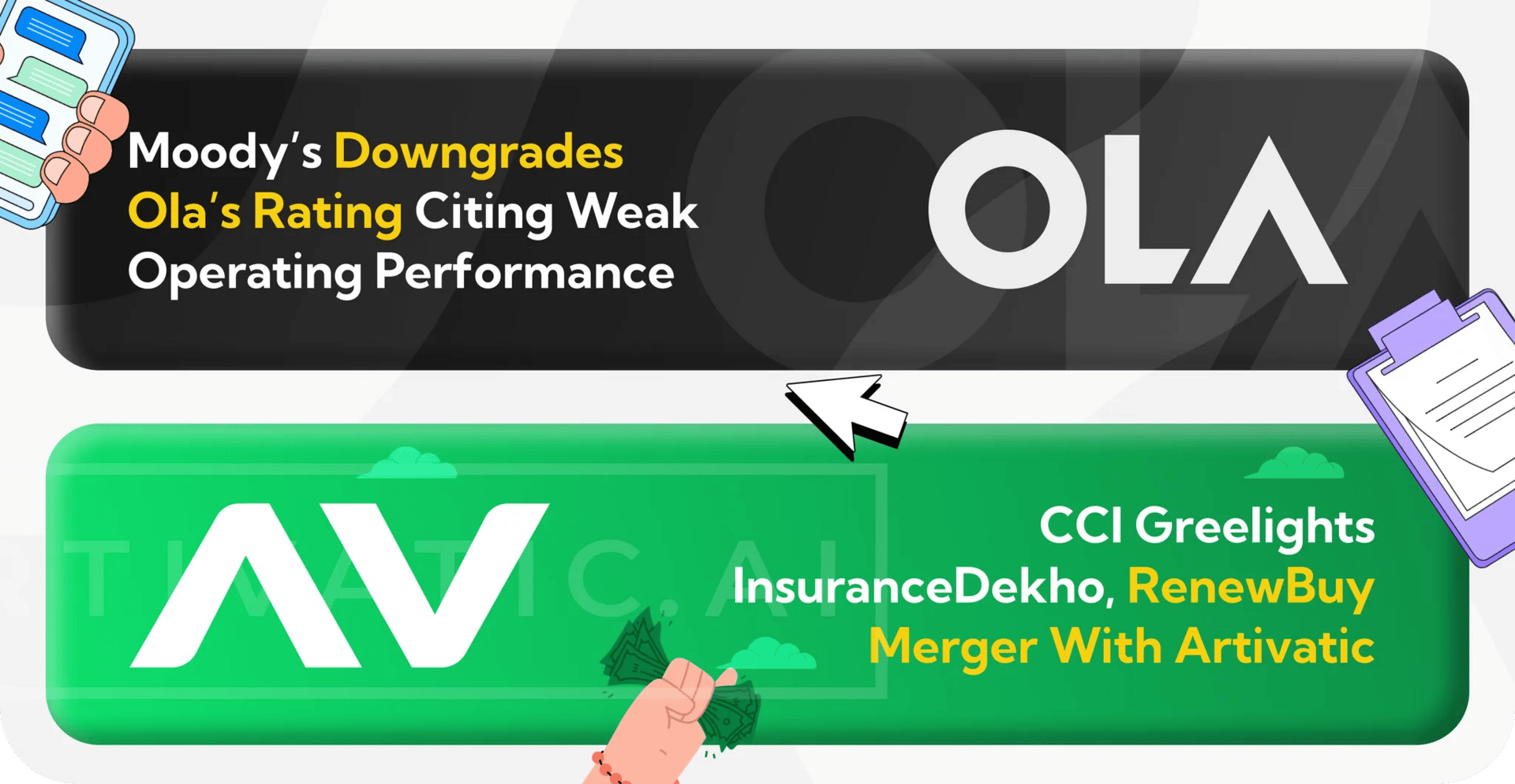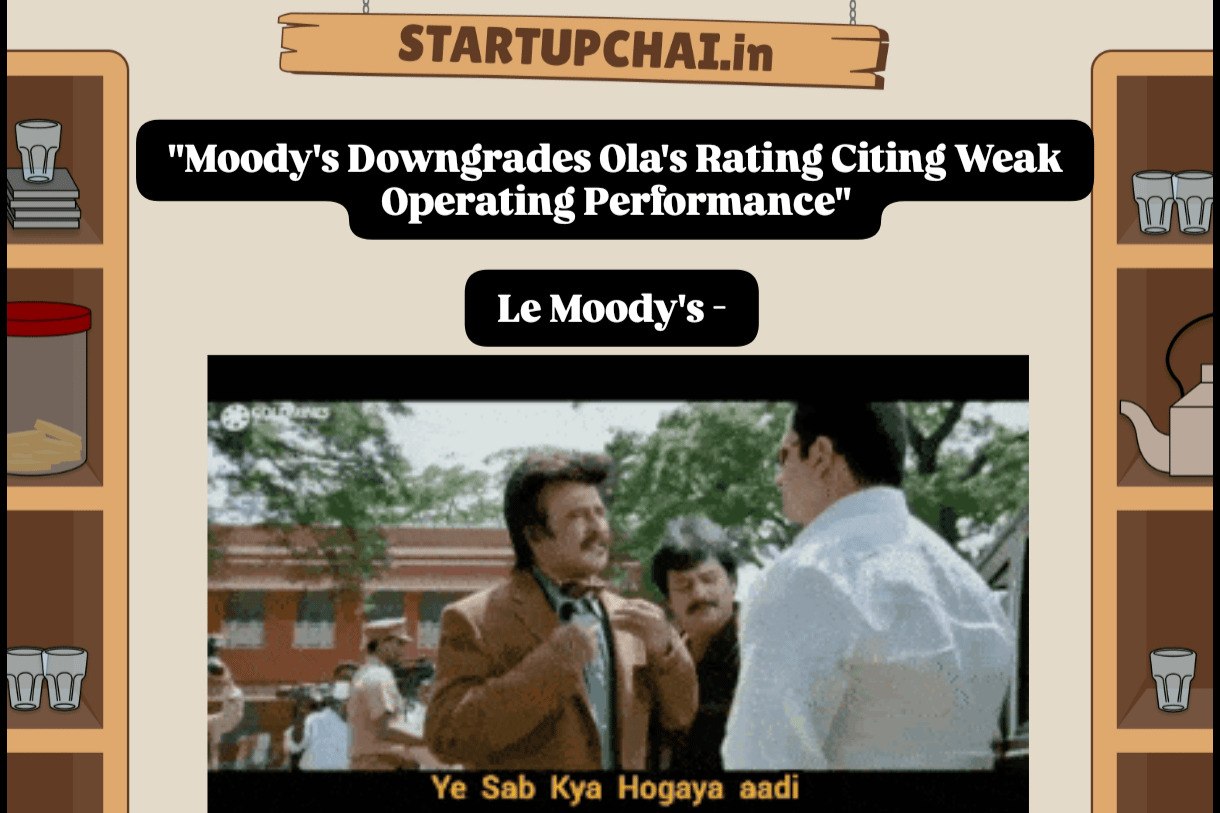- Startup Chai
- Posts
- India’s Dual Funding Reality, Ola’s Rating Downgraded, and CCI Greenlights Merger
India’s Dual Funding Reality, Ola’s Rating Downgraded, and CCI Greenlights Merger
Plus LVL Zero’s Launch and fundraising news about Miko and Agnikul Cosmos

India’s startup market now runs on two parallel tracks. One is fast and flush with private capital - the world of SaaS, fintech, and AI startups that raise $100 million rounds and dream of quick IPOs. The other is slower, built on government-backed funds and patient capital, designed for deeptech - rockets, chips, and biotech. Both are growing, but they follow different clocks.
Private money still chases speed. Investors back asset-light models that can scale and list quickly, like MoEngage or Lenskart. Meanwhile, India’s deeptech ecosystem is expanding quietly: more than a quarter of new startups claim a deeptech element, but funding remains just 9-12% of total venture capital. That’s because the economics are hard. Hardware takes years, not months; it needs labs, engineers, and long sales cycles. To bridge that gap, the government has stepped in with massive programs - a ₹1,00,000-crore RDI outlay, a ₹10,000-crore Deep Tech Fund of Funds, and a ₹1,000-crore IN-SPACe VC fund. The idea: build what venture money won’t touch.
But public money alone won’t solve the problem. India still lacks the systems that let deeptech scale. Procurement is rigid, designed for lowest-cost suppliers, not innovative startups. IP from public projects often stays locked in government files, cutting founders out of the upside. Without better procurement rules and IP ownership clarity, many promising ideas will die as pilots that never reach market.
On the other track, public markets are buzzing. Lenskart’s IPO was oversubscribed nearly 28 times, showing investors’ appetite for proven brands. Tech IPOs are back, giving VCs exits and confidence to recycle capital. But this momentum is uneven. Deeptech startups like Agnikul still raise tiny rounds compared to SaaS giants. Investors understand software’s path to profitability; hardware still looks like a gamble. That perception will only change when the state itself becomes a steady customer.
The U.S. created SpaceX with NASA contracts; India is trying to replicate that model through IN-SPACe. Over 350 space startups now exist, from Skyroot to Pixxel. The government wants five deeptech unicorns and 50 launches annually by 2033. But ambition isn’t enough - startups need guaranteed orders and multi-year contracts that let them plan for scale.
DPIIT’s partnerships with 50 corporates, including Zepto, Hero, and Ather, aim to close this loop. Shared labs, paid pilots, and prototyping support are steps forward. Yet MoUs mean little without purchase orders. Real change happens when a startup builds 100 units for a pilot and wins a 1,000-unit order if it performs. That’s when VCs start treating deeptech like a real asset class.
India’s public market evolution is also reshaping behavior. In 2024, IPOs drove most VC exits; in 2025, record listings continued. This gives investors faith to back quality companies and rotate funds. But the discipline must hold. Governance lapses or inflated valuations could destroy trust again, as seen with Paytm and OYO. For founders eyeing IPOs, transparency and predictable economics are non-negotiable.
So what’s the right balance? Let private capital keep backing fast-scaling software, and let patient capital absorb deeptech risk. The bridge between them is smarter policy. Fix procurement to focus on outcomes, standardize IP rules, and use the Deep Tech Fund as first-loss capital to attract insurers and pensions.
Founders, too, need dual strategies. Deeptech ventures should raise global capital for R&D and domestic capital for manufacturing and certification. SaaS and AI startups should stay IPO-ready. Those straddling both worlds must design for government procurement early.
In the end, India’s two funding tracks aren’t in conflict - they’re complementary. The real test is building a bridge between them. The country has written the cheques and signed the MoUs; now it must place the orders, unlock IP, and give investors confidence that India can build both rockets and revenue models at global scale.
Let’s go through what else is happening in Indian startup world - Grab your simmering cup of StartupChai.in and unwind with our hand-brewed memes.

“Arre Re Adi Ye Kya Hua”: Moody’s Downgrades Ola’s Rating Citing Weak Operating Performance
Moody’s just gave Ola a bumpy ride, downgrading its rating to Caa1 from B3 over weak performance and cash burn worries.
The agency flagged mounting competition and the risk of a covenant breach as speed breakers on Ola’s road to recovery. Looks like the ride-hailing giant’s next 12 months will be less about cruising and more about clutch control.
Read more here

“Jab Miya Bibi Ho Raazi”: CCI Greelights InsuranceDekho, RenewBuy Merger With Artivatic
The CCI has waved the green flag for a major insurtech reshuffle - InsuranceDekho and RenewBuy’s parent entities are merging into Artivatic Data Labs.
All four Girnar Group arms, including Girnar Finserv and D2C Consulting, will now operate under the Artivatic umbrella. With this move, CarDekho’s ecosystem just got leaner, smarter, and a lot more data-driven.
Read more here


“Hum Saath Saath Hai”: Think Investments Picks Up Stake Worth INR 136 Cr In IPO-Bound PhysicsWallah
Think Investments has snapped up a stake worth INR 136 Cr in IPO-bound PhysicsWallah, buying shares from 14 employees ahead of the big debut.
The firm paid INR 127 per share, well above the IPO price band of INR 103 to 109, a clear show of confidence in the edtech unicorn. With the public issue opening on November 11, PW seems set for a lesson in market momentum.
Read more here

“Suswagatam Suswagatam”: Mobavenue Ropes In Microsoft AI’s Ben John As Advisor To Guide AI Strategy
Mobavenue has brought onboard Ben John, the tech brain behind Microsoft’s AI CoPilot and cofounder of Xandr, as an advisor to sharpen its AI game.
With over two decades in AI and adtech, he’ll steer Mobavenue’s innovation strategy and global expansion plans. For the bootstrapped madtech startup, this could be the power-up it needs to level up beyond walled gardens.
Read more here

“Level Sabke Niklenge”: Nazara, MIXI Global Investments & Chimera VC Launch LVL Zero To Power India’s Gaming Startups
Nazara, MIXI Global Investments, and Chimera VC have teamed up to launch LVL Zero, India’s first equity-free gaming incubator, at IGDC 2025 in Chennai.
Backed by Google as knowledge partner, the program will hand out $10,000 grants to 10 startups per cohort. With dreams of powering 100+ studios in five years, LVL Zero is setting India up for its next big high score in global game development.
Read more here

Miko, the AI-powered kids’ robot brand, has secured $10 Mn from US media giant iHeartMedia in a fresh funding round. The partnership will also plug iHeart’s massive audio library into Miko’s robots, turning playtime into a family-friendly audio adventure.
Read more here
Agnikul Cosmos has secured INR 67 Cr in a fresh mix of equity and debt funding to advance its small-lift launch vehicles. The IIT-Madras spinout continues its mission to make space access more flexible and affordable after last year’s INR 200 Cr Series B.
Read more hereSwiggy’s board has cleared plans to raise INR 10,000 Cr, or about $1.1 Bn, through a mix of market issuances. The mega fundraise may roll out in multiple tranches via QIP or other approved routes as the food delivery giant readies for its next growth phase.
Read more here
How did today's serving of StartupChai fare on your taste buds? |